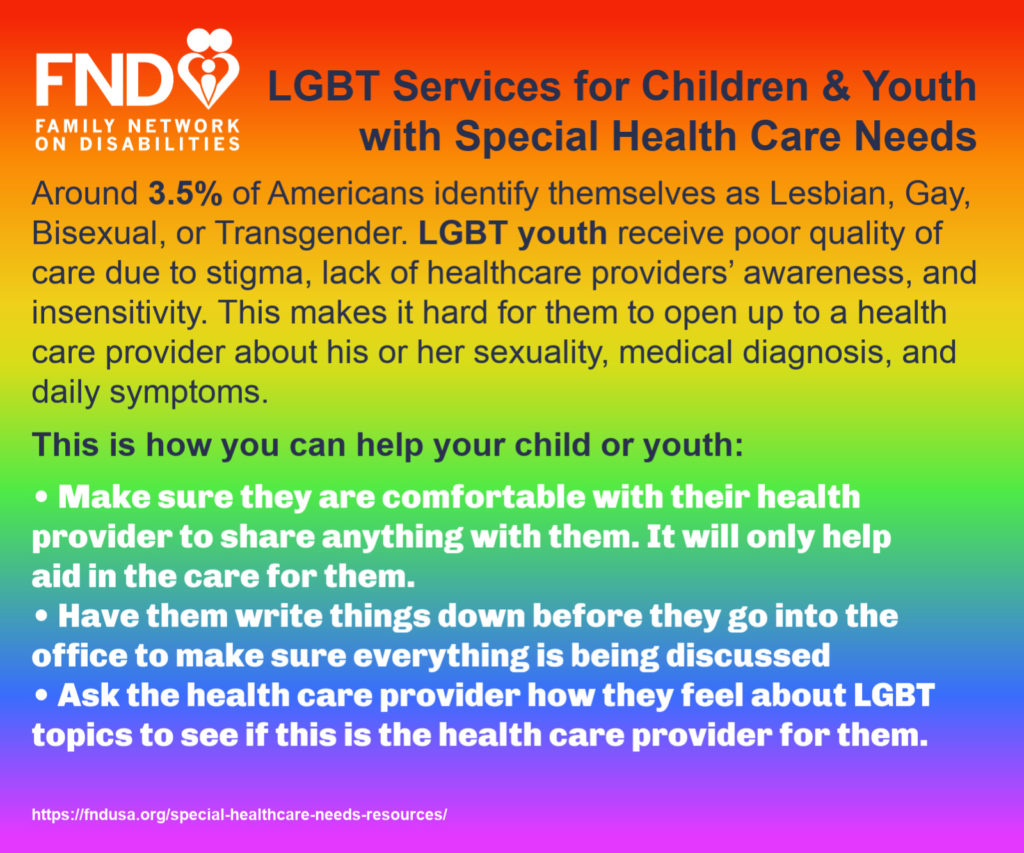
Around 3.5% of Americans identify themselves as Lesbian, Gay, Bisexual, or Transgender.
Young LGBT individuals find it difficult to report their sexual identity to their health care providers and families. Some health care providers are not well trained in LGBT issues.
A study conducted in Washington DC showed that 68% of sexual minority youth reported about not discussing their sexual orientation, and 90% reported reservations about reporting them to their clinicians. The lack of training can strain the therapeutic relationship between the providers and patients. Therefore, it can influence the quality of care and appropriate delivery of health care.
If you add special health care needs in with LGBT issues it will be hard for youth to open up to a health care provider about his or her sexuality, medical diagnosis, and daily symptoms.
It’s important to make sure you and your health care provider are on the same page when it comes to your health care and you can be open about who you are to better your treatment options.
Give us a call at (727) 523-1130 or (800) 825-5736 or request a callback by clicking below.